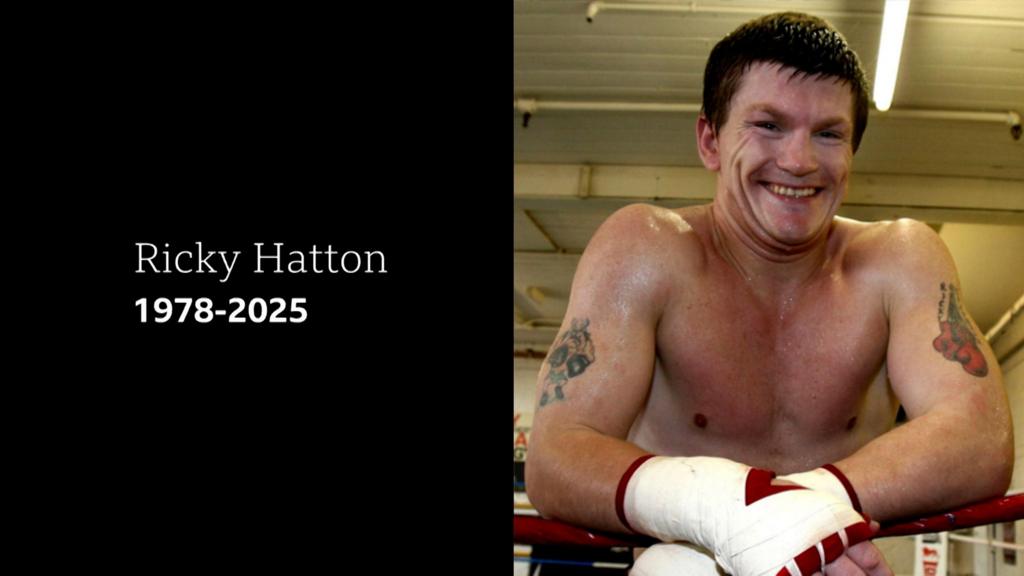The boxing world stands united in solemn remembrance today as news spreads of Ricky Hatton’s passing at 46. This gut-wrenching loss silences the roar of Manchester’s beloved Hitman, a fighter who carried the hopes of working-class Britain into rings across the globe with every thunderous body shot. Though his final bell has rung, Hatton’s legacy as one of Britain’s most electrifying champions continues echoing through the halls of boxing history—a testament to a man who fought with unbridled passion both inside and outside the ropes.
Remembering Ricky Hatton’s Championship Glory
Born in Stockport in 1978, Richard John Hatton exploded onto the boxing scene not with polished technique, but with relentless pressure and devastating body attacks that embodied Manchester’s industrial grit. His meteoric rise saw him capture the IBF light-welterweight title in 2005 when he dismantled the feared Kostya Tszyu—a seismic upset where Hatton’s non-stop assault forced the champion to quit on his stool after 11 brutal rounds. That night at Manchester’s MEN Arena wasn’t just a victory; it cemented Hatton as the people’s champion, a blue-collar warrior whose work ethic mirrored his loyal supporters.
Hatton’s reign generated an unprecedented cultural phenomenon dubbed Hitmania. His ring walks became legendary events, where tens of thousands sang Blue Moon with such deafening volume they shook stadium foundations. Never before had a British fighter commanded such visceral devotion, with fans invading Las Vegas casinos like a working-class army whenever their hero fought abroad. This unfiltered connection stemmed from Hatton’s authenticity—he remained rooted in Manchester’s pubs and camaraderie even as he sold out arenas worldwide.
The Price of War
Hatton’s fearless willingness to challenge boxing’s elite defined his career’s duality. Though he unified titles at 140 pounds, his ambitious leap to welterweight against Floyd Mayweather Jr. in 2007 showcased both his greatest courage and limitations. Entering the ring as an undefeated phenom, Hatton’s swarming tactics met their match against Mayweather’s surgical precision, suffering his first knockout loss under the dazzling Las Vegas lights. Two years later, Manny Pacquiao’s concussive left hand sealed another punishing defeat in just two rounds—a devastating moment where Hatton lay motionless, triggering collective gasps across the sport.
These high-profile losses, while damaging to his record, never diminished Hatton’s standing among fans. If anything, they underscored the vulnerability beneath his brawling exterior—a relatable humanity that intensified public affection. His notorious post-fight indulgences became part of his charm, making subsequent battles with depression and weight gain painfully public struggles that mirrored the hardships faced by those cheering him on.
Master of the Body Punch
Beyond his warrior spirit, Hatton’s technical brilliance often went overlooked. His signature body attack wasn’t wild swinging but calculated brutality—snarling hooks to the midsection delivered with perfect leverage that drained opponents over rounds. Trainers worldwide still show students footage of Hatton pivoting off the ropes, cutting angles to unleash those rib-crunching blows. Against Jose Luis Castillo, a man who’d gone the distance with Mayweather, Hatton produced a career-defining fourth-round stoppage by ruthlessly targeting the liver—a masterclass in body punching. His tactical intelligence shone brightest when underestimated, transforming brawls into measured dismantlements.
The Emotional Comeback
Hatton’s 2012 comeback attempt against Vyacheslav Senchenko carried overwhelming emotional weight—a chance at redemption after three years away from the ring and publicized personal turmoil. Though ended by a ninth-round body shot that dropped him to one knee, Hatton’s tearful post-fight speech revealed the profound love affair between fighter and fans. Thank you for never giving up on me, he rasped through tears as Manchester’s faithful roared through their own weeping—a raw moment underscoring that while championships fade, human connection endures.
Legacy Beyond the Wins
In remembering Ricky Hatton, we celebrate more than his 45 wins and two-weight world championships. We honor the way he reshaped British boxing’s landscape, proving fighters could resonate globally while staying unmistakably local. His Hatton Promotion company continues developing champions today, while his candidness about mental health struggles opened crucial conversations in a sport steeped in machismo. The countless gyms across Manchester where kids still practice his signature bob-and-weave move? That’s legacy. The working-class fans who saw themselves in his triumphs and failures? That’s immortality.
As tributes pour in from Tyson Fury to Oscar De La Hoya, boxing remembers Ricky Hatton not as a flawless champion, but as an authentic human whose flaws made his achievements more luminous. His story embodies the brutal beauty of prizefighting—the ability to unite communities, inspire hope, and ignite unforgettable nights where sport transcends competition and becomes shared catharsis.
The Hitman’s greatest victory wasn’t claimed with belts, but in the permanent imprint he left on boxing’s soul. Today, as we raise a glass in Manchester pubs and replay his ferocious body shots on grainy YouTube clips, we’re reminded that legends never truly leave the ring—their spirits live on in every fan whose heart pounds faster at the sound of a bell. Rest easy, champ. You earned it.
